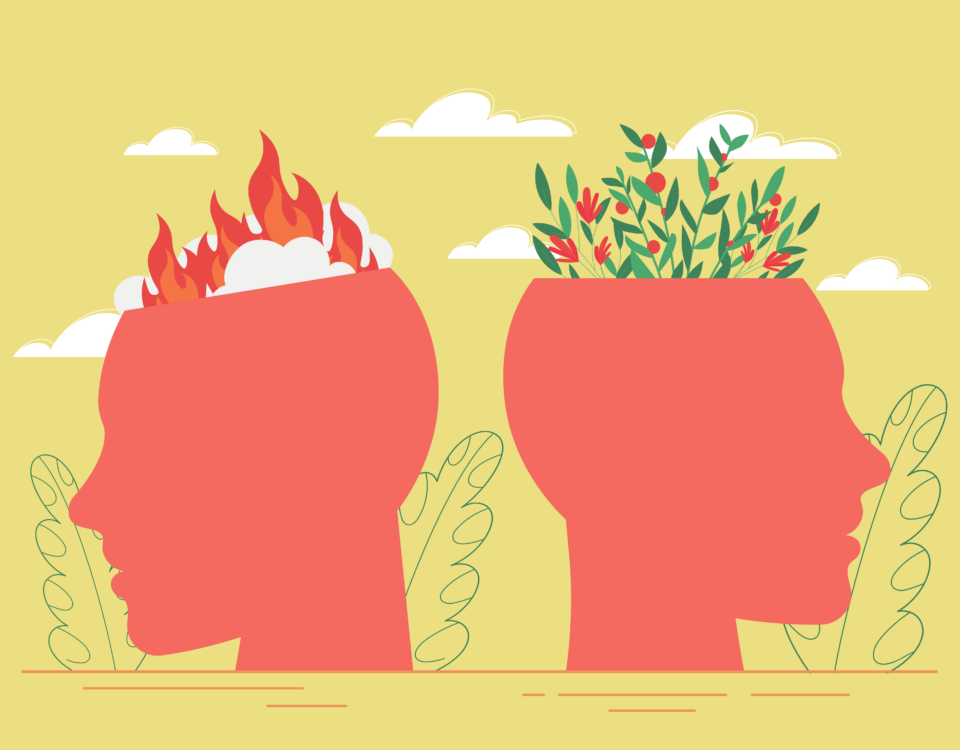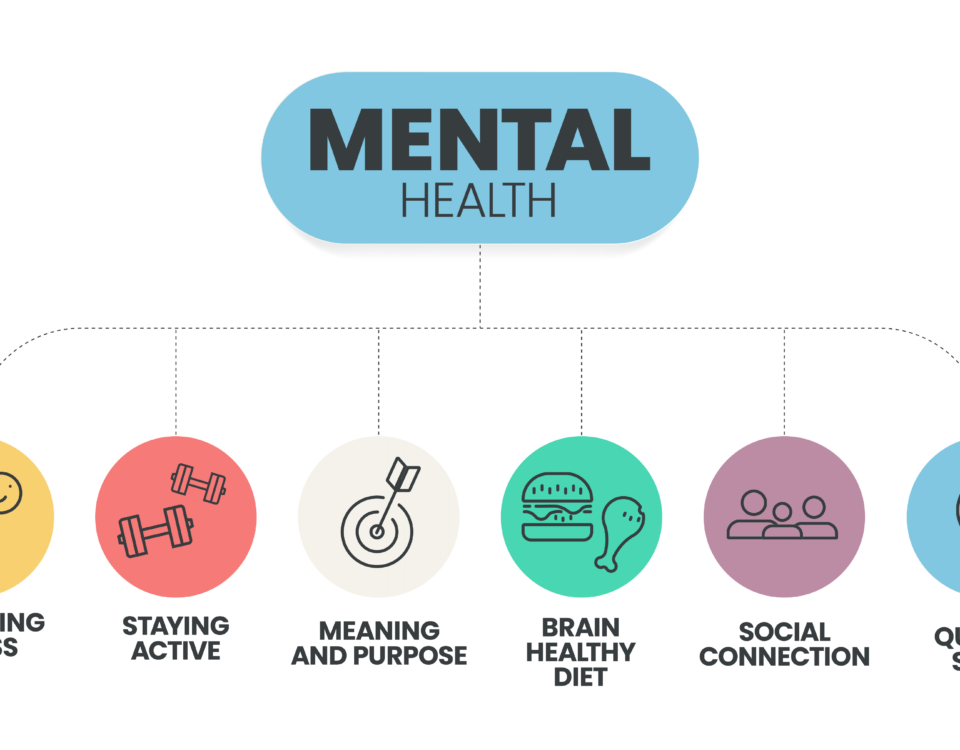Effects of Depressants on the Body
The prevalence of prescription drug abuse has risen in the United States as a result of the opioid epidemic. Many people are suffering from addiction to prescription drugs like depressants and stimulants. As a drug treatment facility in Texas, we understand the effects of depressants on the body and why prescription drug abuse is so dangerous.
What is a Depressant Drug?
Depressant drugs also referred to as central nervous system depressants are medications that slow brain activity, making them effective in treating conditions like insomnia, anxiety, panic disorders, stress, sleep disorders, pain, and seizures. There are three major types of CNS depressants: tranquilizers, sedatives, and hypnotics. These drugs work by affecting an inhibitory neurotransmitter called gamma-aminobutyric acid (GABA), which blocks certain brain signals to reduce activity in the central nervous system.
Some common CNS depressants include:
- Alcohol
- Benzodiazepines (such as Valium, Xanax, and Ativan)
- Most sleeping medications (such as Sonata, Lunesta, and Ambien)
- Barbiturates
- Opioids (such as methadone, codeine, hydrocodone)
Depressants work differently depending on the drug class they’re in, but they can all reduce activity in the central nervous system. While some are considered to be slightly safer than others and are therefore more frequently prescribed, all depressants have a potential for abuse and should only be used if and as prescribed by a doctor.
The very first step in addressing addiction to CNS depressants involves a critical process known as detoxification. This essential phase is specifically designed to allow the harmful substances to completely exit the body, ideally occurring within the controlled environment of a rehabilitation or medical facility. Banyan Treatment Centers Texas supports this initial step by offering various medical detox programs in Waelder. These programs are tailored to help patients gradually eliminate the physical dependencies associated with CNS depressants. Recognizing the importance of this foundational step, our facilities ensure that detox is conducted under 24-hour medical supervision, providing continuous care and specialized treatment to manage withdrawal symptoms effectively. This methodical approach not only secures safety but also sets the groundwork for successful recovery, making it a frequently recommended first step in the treatment of CNS depressant addiction.
Getting into treatment is easy with our free insurance verification
"*" indicates required fields
What Effect Do Depressants Have On The Body?
Depressant drug effects on the body depend on factors including the drug class of the depressant, the dose that was taken, whether it was mixed with any other substances, the length of time the person has been using the drug, and a variety of other physical factors. Alcohol is one of the most widely used depressants in the world, partly because it’s accessible for people 21 and older in the U.S. The effects of alcohol on the brain are similar to those of prescription depressants but different in that it can induce anxiety when drunk excessively. Other prescription depressants may not be as accessible as alcohol, but they can still be abused and lead to addiction, nonetheless. The effects of depressants on the central nervous system are the main reason why people abuse them. However, as with most other drugs of abuse, CNS depressants can lead to tolerance and addiction. The longer a person abuses drugs, the more tolerant they become of their side effects. These individuals may then begin taking higher doses to experience the same high. If this self-destructive pattern of behavior continues, it can result in addiction. Some common side effects of depressants on the body include:
- Relaxation and euphoria
- Drowsiness
- Decreased blood pressure
- Dilated pupils
- Confusion or disorientation
- Sleepiness
- Dizziness
- Loss of memory
- Difficulties urinating
- Slowed reaction time
- Inhibited motor movement
- Impaired judgment
- Slurred speech
- Blackouts or loss of consciousness
- Loss of coordination
- Reckless or self-destructive behavior
Long-term CNS depressant abuse can lead to a variety of health problems. The side effects of central nervous system depressants can become more severe over time. Some long-term effects of CNS depressants on the body include:
- Addiction
- Chronic fatigue
- Weight gain
- Sexual dysfunction and decreased libido
- Respiratory problems
- Difficulties sleeping
- Depression
- Suicidal thoughts and behavior
Another common side effect of central nervous system depressant use is overdose. Overdose refers to the consumption of a toxic dose of drugs or alcohol. An overdose on CNS depressants can lead to seizures, respiratory depression, and death. These drugs should not be combined or taken with any other medications or substances that can also cause sedation. Combining these substances can reduce breathing and heart rate, which can be fatal. Mixing depressants with any other drugs, illicit or prescription, is dangerous and should be completely avoided.
When it comes to safely withdrawing from CNS depressants, Medically-assisted detox is the safest way to withdraw from CNS depressants, as physicians can gradually decrease use and prescribe any medications to assist with debilitating withdrawal symptoms. This process is crucial due to the severe physical and psychological symptoms that can occur during withdrawal. Medically-assisted detox provides a controlled environment where the health and safety of the individual are prioritized. We offer addiction treatment at Banyan Texas to help individuals regain their sobriety from addictions to drugs like opioids, benzos, alcohol, and other depressants. A great way to avoid prescription drug addiction is to ask your doctor how depressants affect the body before taking them. They can explain how addiction happens when these drugs are abused and can offer specific directions for taking them safely. If you or someone you know is struggling with drug addiction call us now at 888-280-4763 to talk to a team member about our addiction levels of care in Texas.
Some common side effects of depressants on the body include:
- Relaxation and euphoria
- Drowsiness
- Decreased blood pressure
- Dilated pupils
- Confusion or disorientation
- Sleepiness
- Dizziness
- Loss of memory
- Difficulties urinating
- Slowed reaction time
- Inhibited motor movement
- Impaired judgment
- Slurred speech
- Blackouts or loss of consciousness
- Loss of coordination
- Reckless or self-destructive behavior
Long-term CNS depressant abuse can lead to a variety of health problems. The side effects of central nervous system depressants can become more severe over time. Some long-term effects of CNS depressants on the body include:
- Addiction
- Chronic fatigue
- Weight gain
- Sexual dysfunction and decreased libido
- Respiratory problems
- Difficulties sleeping
- Depression
- Suicidal thoughts and behavior
Another common side effect of central nervous system depressant use is overdose. Overdose refers to the consumption of a toxic dose of drugs or alcohol. An overdose on CNS depressants can lead to seizures, respiratory depression, and death. These drugs should not be combined or taken with any other medications or substances that can also cause sedation. Combining these substances can reduce breathing and heart rate, which can be fatal. Mixing depressants with any other drugs, illicit or prescription, is dangerous and should be completely avoided. We offer addiction treatment at Banyan Texas to help individuals regain their sobriety from addictions to drugs like opioids, benzos, alcohol, and other depressants.
How Do Central Nervous System Depressants Work In The Brain?
Central nervous system depressants function by enhancing the levels of the neurotransmitter GABA in the brain. By doing so, these drugs effectively decelerate brain processes, leading to a state of relaxation and sleepiness among other effects.
How Can Therapy, Such As Cognitive Behavioral Therapy, Help In Treating CNS Depressant Abuse?
Cognitive behavioral therapy (CBT) plays a crucial role in the treatment of CNS depressant abuse by addressing the underlying psychological patterns that contribute to the addiction. It works by helping individuals identify and change negative thought processes and maladaptive behaviors associated with their substance use. Furthermore, CBT equips patients with practical coping strategies to manage daily stressors that can trigger relapse. By integrating these elements, CBT aids individuals in developing a healthier mindset and more adaptive behavioral responses, promoting long-term recovery from CNS depressant abuse.
What are Some Common Symptoms of Central Nervous System Depressant Withdrawal?
Common symptoms of central nervous system depressant withdrawal can include anxiety, panic attacks, insomnia, muscle tremors, sweating, nausea, vomiting, hallucinations, and seizures. Additionally, individuals may experience restlessness, shaking, weakness, excessive sweating, irritability, depression, muscular stiffness or pain, changes in perception, heart palpitations, tension, memory issues, increased blood pressure and pulse, hypersensitivity to light and sound, and general aches and pains. The severity of withdrawal symptoms can vary depending on the type of depressant used, the duration of use, and individual factors such as age, health, and genetic predisposition. It is important for individuals experiencing withdrawal to seek medical assistance to safely manage and mitigate these symptoms, as they can range from mild discomfort to severe, life-threatening conditions.
When Do Withdrawal Symptoms Typically Begin After The Last Dose Of The Drug?
Withdrawal symptoms generally start to manifest between 12 and 24 hours following the last dosage of the drug. These symptoms reach their peak intensity from 24 to 72 hours after the last administered dose.
What Is The Rebound Effect That Individuals May Experience During Benzodiazepine or Barbiturate Withdrawal?
The rebound effect refers to the phenomenon where symptoms that were initially treated with benzodiazepines or barbiturates intensify upon discontinuation of the drugs. For instance, an individual using Xanax to manage anxiety might find that their anxiety symptoms worsen significantly after they stop taking the medication. This exacerbation of symptoms can occur as the body reacts to the absence of the substance it had grown accustomed to for symptom management.
What Are The Effects Of Alcohol As A Central Nervous System Depressant?
Many individuals might initially experience a sense of increased sociability and relaxation upon consuming alcohol. This is due to its immediate, though temporary, effects on brain chemistry, which can make a person feel less inhibited. However, as alcohol acts as a depressant on the central nervous system, prolonged drinking leads to more significant changes in the brain's functioning. As a result, rather than decreasing feelings of anxiety and stress, continuous alcohol consumption can actually heighten these feelings. Furthermore, alcohol may induce negative emotional states such as anger, aggression, and even feelings of depression, which contradicts the initial positive perceptions some individuals might have about its effects.
What Are Non-Benzodiazepine Sleep Aids And Their Effects As Central Nervous System Depressants?
Non-benzodiazepine sleep aids, often referred to as "Z-drugs," include medications such as Ambien, Sonata, and Lunesta. These drugs are distinct from other central nervous system (CNS) depressants in their chemical structure and their mode of action. Designed specifically to address insomnia and similar sleep disorders, Z-drugs function by targeting the GABA neurotransmitter, albeit through a different mechanism than benzodiazepines. Unlike benzodiazepines, these medications do not have anti-anxiety effects. Although they are generally considered to have a lower risk of side effects and dependency, prolonged usage can nonetheless lead to addiction and dependence.
A great way to avoid prescription drug addiction is to ask your doctor how depressants affect the body before taking them. They can explain how addiction happens when these drugs are abused and can offer specific directions for taking them safely. If you or someone you know is struggling with drug addiction call us now at 888-280-4763 to talk to a team member about our addiction levels of care in Texas.
Related Readings:







